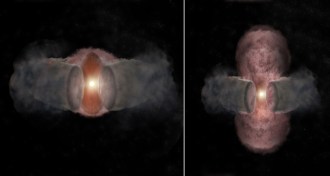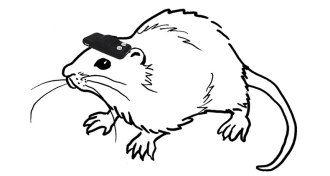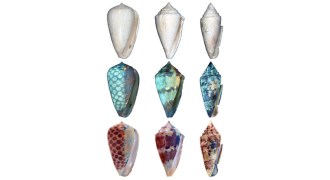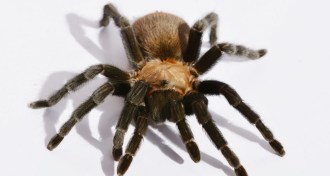All Stories
-
 Particle Physics
Particle PhysicsExotic particle turns out to be quark molecule
Subatomic particles made of quarks can bind together to form molecules, according to a computer simulation of a long-studied mysterious particle.
By Andrew Grant -
 Science & Society
Science & SocietyNCAA tournament puts prediction strategies to the test
When it comes to strategies for building the most winning bracket during March Madness, all bets are off.
-
 Science & Society
Science & SocietyForensic analysis finds ‘Blurred Lines’ case not so clear
In March, courts ruled that the song “Blurred Lines” borrowed from Marvin Gaye’s “Got to Give it Up.” But a closer look finds the songs aren’t all that alike.
-
 Earth
EarthSpot the northern lights with Aurorasaurus
Crowdsourced Aurorasaurus project uses Twitter to track the northern lights.
-
 Climate
ClimateFewer cold snaps in the forecast
Rapid Arctic warming will reduce the frequency of cold snaps throughout much of the Northern Hemisphere, new research suggests.
-
 Health & Medicine
Health & MedicineEarly birth control study probed effectiveness of pill
A 1960s study probed birth control pills’ effectiveness for women. Researchers are still trying to make a pill for men.
-
 Astronomy
AstronomyFountains of spewing gas provide look at megastar formation
Fountains of gas erupt from a young massive star, giving astronomers a play-by-play on how stellar heavyweights form.
-
 Anthropology
AnthropologyFootprints offer clues about daily hominid life
Early male members of the human genus spent a lot of time together by the water, as their footprints attest.
By Bruce Bower -
 Neuroscience
NeuroscienceRats can navigate mazes, even when blind
Blind rats can learn to navigate with a compass and microchip prosthetic wired into their brains. Similar devices may one day help humans have super senses.
-
 Animals
AnimalsFossilized seashells’ true colors revealed
To the naked eye, fossilized seashells lack the colorful patterns of their living counterparts. But ultraviolet light can reveal some of their unique hues.
-
 Animals
AnimalsHeat makes scuttling tarantulas less coordinated
On hot days, tarantula run faster, but their may be harder to bend and flex at high speeds, researchers find.
-
 Health & Medicine
Health & MedicineA more accurate prenatal test to predict Down syndrome
A test to detect genetic problems such as Down syndrome examines a baby’s DNA in the mother’s blood and may limit the need for more invasive screening.